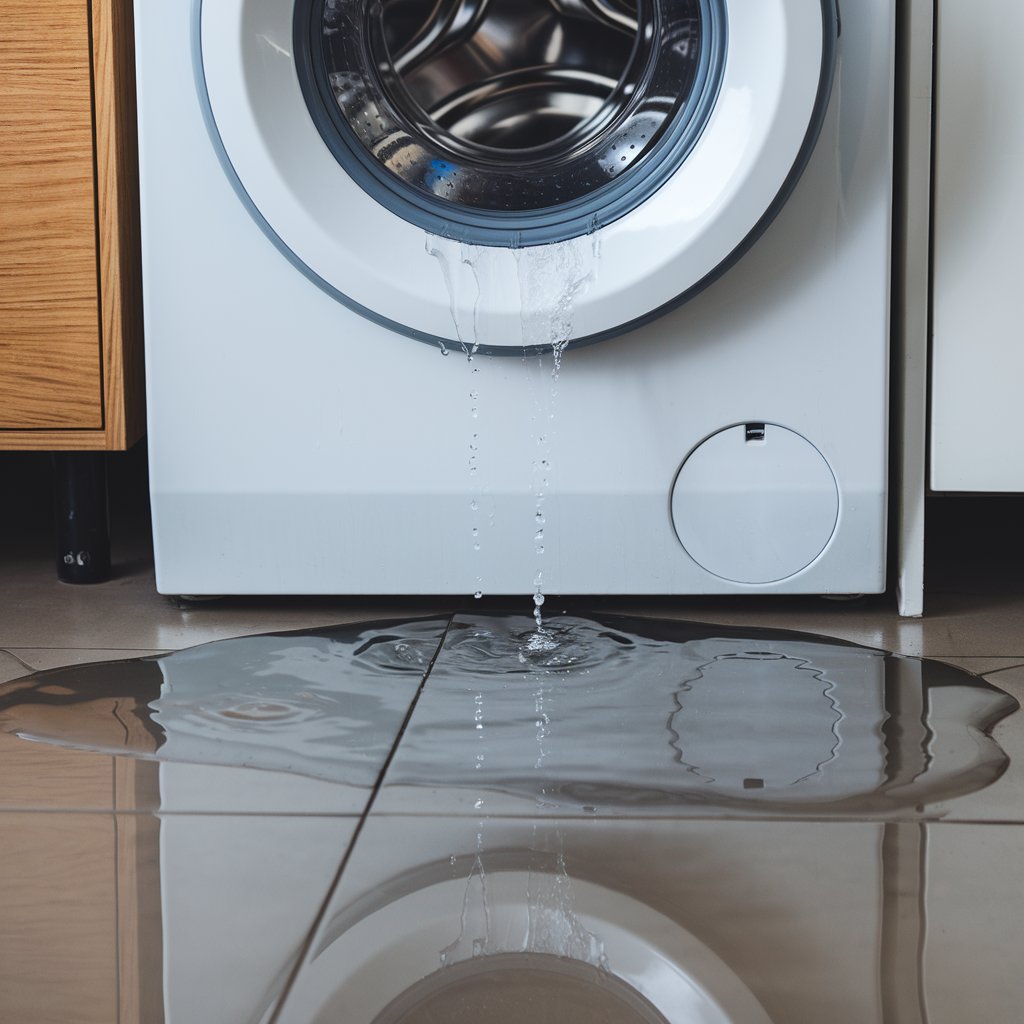

A leaking washing machine can cause frustration, water damage, and even costly repairs if left unchecked. Understanding the reasons behind these leaks and knowing how to fix them can save you from headaches and help extend the life of your appliance. Whether your washing machine is leaking from the top, bottom, or during specific cycles, it’s essential to troubleshoot the issue immediately. In this guide, we’ll explore the common causes of washing machine leaks and offer step-by-step solutions to get things back in working order.
Problem: Why is my washing machine leaking?
One of the most frequent causes of washing machine leaks is a worn or damaged hose. Over time, the hoses connecting your machine to the water supply can become cracked, split, or worn down. These issues lead to water leaks that may start small but can quickly worsen.
Agitation: Causes of leaking washing machine
Ignoring hose wear and tear may lead to more severe leaks, potentially flooding your laundry area and causing extensive damage.
How to Fix It:
Problem: Washer leaking from the top
If your washing machine is leaking from the top, the issue may not be with the hoses themselves but with their connections. Loose hose connections can result in water escaping and causing leaks.
Agitation: Why is my washing machine leaking when not in use?
Loose connections can cause minor leaks that go unnoticed, especially if the washer isn’t in use. This can lead to mold growth and increased water bills.
How to Fix It:
If your washing machine is still leaking after tightening the connections, the problem could lie elsewhere, requiring further investigation.
Problem: Washing machine leaking from the top
If you have a front-loading washer, the door seal (also known as the gasket) can wear out over time, leading to water leaks during the wash cycle. A worn or damaged door seal can allow water to escape, creating puddles on your laundry room floor.
Agitation: My washing machine is leaking—why?
A faulty door seal can also lead to mold and mildew buildup, resulting in unpleasant odors and potential health risks.
How to Fix It:
Problem: Washing machine leaking during drain cycle
A clogged or faulty drain pump can prevent your washing machine from draining properly, resulting in leaks. Blockages in the pump or a malfunctioning pump can cause water to spill out, especially during the draining phase.
Agitation: Why did my washing machine leak?
If the pump is blocked or damaged, it can lead to extensive water damage if left unrepaired.
How to Fix It:
Problem: Why is my washer machine leaking?
Overloading your washer with too many clothes or bulky items can cause the drum to become unbalanced. This imbalance can lead to water splashing out of the machine, especially during the spin cycle.
Agitation: Why would my washing machine leak?
Repeated overloading can damage your washer’s internal components and lead to frequent leaks, reducing the lifespan of the machine.
How to Fix It:
Problem: Washing machine leaking from inside
While less common, a cracked or broken drum can also lead to leaks. This issue is typically seen in older or heavily used washing machines.
Agitation: Where is my washing machine leaking from?
A cracked drum not only causes leaks but can also cause long-term damage to the machine, resulting in expensive repairs or even the need for a replacement.
How to Fix It:
Problem: Washing machine leaking from top or bottom
If your washing machine wasn’t installed correctly, it may not be level, or the hoses and drainpipes may not be properly connected, leading to leaks.
Agitation: Why is washing machine leaking after installation?
Improper installation can lead to leaks that persist, despite attempts to tighten connections or fix other components.
How to Fix It:
Problem: Why is my washing machine leaking from the bottom?
The water inlet valve controls the water entering the washing machine. If it becomes faulty or clogged, it can cause internal leaks that are harder to spot.
Agitation: Why is my washer leaking inside the machine?
Internal leaks may not be visible immediately, but they can cause significant damage to the machine over time if ignored.
How to Fix It:
Problem: Why is my washing machine leaking when not in use?
Leaks that occur when the washing machine isn’t running can be caused by a faulty water inlet valve, residual water left in the hoses, or a loose connection.
Agitation: What causes washer leaks when idle?
Undetected leaks can lead to water damage, mold, and mildew in your laundry room if the source isn’t identified and fixed promptly.
How to Fix It:
Whether your washing machine is leaking from the top, bottom, or when not in use, understanding the causes can help you troubleshoot the problem quickly. Regular maintenance and inspections can prevent many leaks before they start, saving you from expensive repairs. However, if the issue persists or you’re unsure of the solution, don’t hesitate to call a professional. With proper care and timely repairs, you can keep your washing machine running efficiently for years
